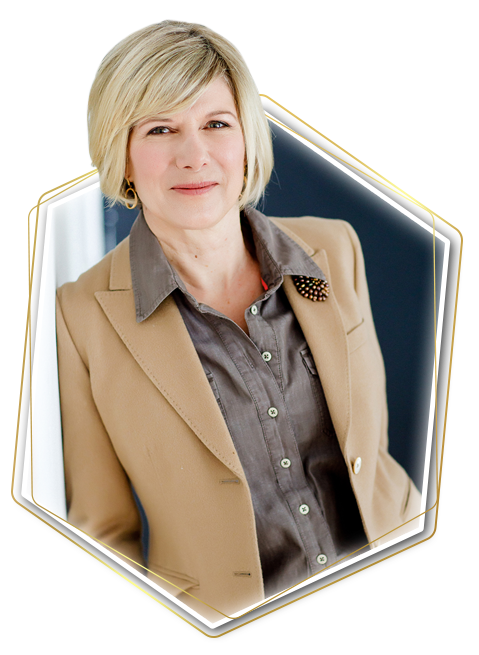But why is the flour gone?
That’s the question I asked myself when the flour shelves in my local grocery store had gone the way of toilet paper shelves – empty. Why would people hoard flour when all the bakeries, like grocery stores and pharmacies, continue to trade as usual? Are people taking the order to stay at home to mean stay at home and bake? Maybe. After all, that’s exactly what I’ve been doing.
During the first week of our government-imposed house arrest, I made donuts using my grandmother’s recipe. My grandmother, Ginny, lovingly crafted dozens and dozens of donuts each year to celebrate the first rainy day of the season. You can find her recipe on page 88 of my book My Grandmother’s Memoir: Reflections on Four Generations and the Recipes That Brought Them to the Table.
My execution of her recipe yielded almost three dozen raised donuts. Once they were sugared and frosted and chocolate sprinkled and set into a tower of yeasty bread goodness, I topped my childhood record by eating ten donuts (which was, by the way, four more than my 24 year-old son could manage). As we licked our fingers I remembered something I’d forgotten: the importance of familiar recipes during difficult times. I have now renamed Ginny’s Rainy Day Donuts to Donuts for the COVID 19 Soul.
The success of the donuts made me want to bake more. I opened my cupboard and threw myself into the cookbooks I had accumulated over the years. One caught my eye, Alaska Sourdough: the real stuff by a real Alaskan, by Ruth Allman, published in 1978. This was my mother’s cookbook. When she passed away suddenly last year, the cookbook was one of the few things I could carry back to Belgium in my suitcase. Now it was going to contribute to my physical and emotional wellbeing for the next week.
My mother kept a sourdough starter alive for nearly twenty years. She made pancakes every weekend morning and bread once or twice a week. Just the thought of sitting at her table fills my mouth with the sweet taste of her wafer-thin, tangy, fluffy cakes. As much as I needed my grandmother’s donuts during the first week of COVID 19 lockdown, I knew I wouldn’t get through the second week without my mother’s sourdough pancakes. But to make them I would need a sourdough starter, one that would ripen in just a few days. That’s how I found myself gawking at the empty flour aisle.
Starter, or “sponge” as the old pioneers called it, has a tradition of being passed through families and from friend to friend. My mother’s recipe is made with two cups potato water, one cup flour, and a dash sugar. This mixture is stirred well and put into a wooden pot or glass jar with enough room to grow. Be warned: when you make this recipe, you must never screw the lid on the jar! Sourdough starter is alive and it needs room to breathe. The dough will double or triple in size every day that you feed it. In Ginny’s day, everyone had their own sourdough recipe, no one needed a cookbook. But alas, few people I know have every made sourdough and even fewer can recall their mothers or grandmothers baking with it. The good news is you can Google recipes with modern ingredients like stout beer or pineapple juice, but you can’t make a starter without flour!
Back in the grocery store, my knees nearly buckled at the sight of empty flour shelves. My throat closed and I worried I might cough. I knew the tears weren’t about the flour, or the isolation, or the lack of certainty or whether COVID 19 would force me to stay at home for two months instead of two weeks. I was crying because my soul-soothing baking spree had been cut short by some crazy virus and it became crystal clear that no amount of baking from my grandmother’s, or mother’s, recipe boxes was going to bring either of them back.
I tried to compose a sentence in my head, in my non-existent French, so that I could ask a store employee when flour would be back on the shelf. A frail-looking, grey haired woman walked a big circle around me as I pulled a tissue from my pocket to dry my eyes. “Bon jour,” I managed to say before my attention turned to a man pushing a pallet piled high with flour bags. Oui! Merci beaucoup! Small miracles are welcome in any form. If my sourdough starter survives the next few days, I’m going to rename it COVID 19 Miracle Deux!

Cynthia Huijgens is a fourth generation Santa Ana, California native who currently resides in Belgium where she is adhering to strict government orders to stay at home AND BAKE!
My Grandmother’s Memoir:
Reflections on Four Generations and the Recipes That Brought Them to the Table, Idle Time Press, 2018, is – sans COVID 19, for sale at the Garden Grove Historical Society 12174 S Euclid St. Garden Grove, California, and through online retailers and bookstores worldwide. ISBN 9781732925892
Paperback
EBook
